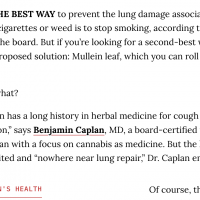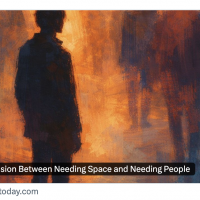When Suffering, Pregnancy and Cannabis Collide: What I Told World magazine—and What the Media Often Misses
As a family doc, I’ve counseled thousands of patients through complex, often emotionally charged health decisions. Few topics generate more heat—and less honest discussion—than cannabis and pregnancy.
Recently, I had the opportunity to share my perspective in World Magazine’s article, “Mothers on Marijuana” (link here).
It’s an important piece, but like much of the media narrative, it left little room for the messy realities that patients—and clinicians—face every day.
In the article, I emphasized a few key points that I believe are critical to understanding this issue responsibly:
Personalization is not optional—it’s essential.
“My routine is usually to try products that are going to be most useful and discover what’s helpful for mom, and then make a routine that’s personalized.”
No two pregnancies are the same. No two patients experience suffering in the same way.
When evidence is limited or incomplete (as it often is with cannabis in pregnancy), personalized, compassionate care becomes not just best practice—it becomes an ethical necessity.
Saying “no” without offering safer, more thoughtful strategies isn’t care. It’s abandonment.
Yes, there are risks. But there’s also suffering.
“Caplan, the pro-cannabis doctor, acknowledged marijuana comes with risks. But he argued they’re ‘modest’ and ‘mostly unconfirmed.’”
This quote has already sparked discussion—and I welcome it.
But I stand by the point: When the risks of untreated suffering are immediate and severe, and the risks of cannabis are, at best, modest and largely associative, we have to have open conversations about all the options.
Blanket prohibitions do not serve patients. They push them into isolation.
The science is incomplete—and we need to admit that.
“Ethical concerns prevent randomized controlled trials of prenatal cannabis use, so available studies draw on previously collected data and can only determine association, not causation.”
This is a nuance often lost in both media and policy.
We don’t have definitive data. And we likely never will.
But patients cannot wait for perfect studies. They need care now. And they need clinicians willing to walk with them through uncertainty.
Sometimes, cannabis may truly be the least harmful option.
“Traditional medications for morning sickness also come with risk… characterizing marijuana as a ‘natural’ alternative and the ‘safest possible choice.’”
This quote will make some readers uncomfortable—and that’s okay.
It’s a conversation worth having.
For many patients who have failed multiple conventional treatments, cannabis—when used thoughtfully, in lower doses, and in cleaner forms—may indeed be the least harmful of the imperfect choices.
That doesn’t mean it’s risk-free. It means it’s one option in a toolbox that should be discussed openly, not hidden behind stigma.
Where do we go from here?
We owe it to patients—especially pregnant mothers—to stop pretending this is a black-and-white issue.
We can:
-
Push for better, more honest research.
-
Acknowledge the limits of our current data.
-
Respect patient autonomy.
-
Offer compassionate, harm-reduction-focused guidance today.
This is the conversation I have with my patients every day.
If you’re a parent, a clinician, or simply someone curious about the science and ethics of cannabis in pregnancy, I invite you to join the conversation.
We cannot afford to keep sweeping these decisions under the rug.
Read the full World Magazine article here: Mothers on Marijuana
For more raw thoughts and a review of the data on the topic: https://cedclinic.com/cannabis-in-pregnancy-5-insights/









